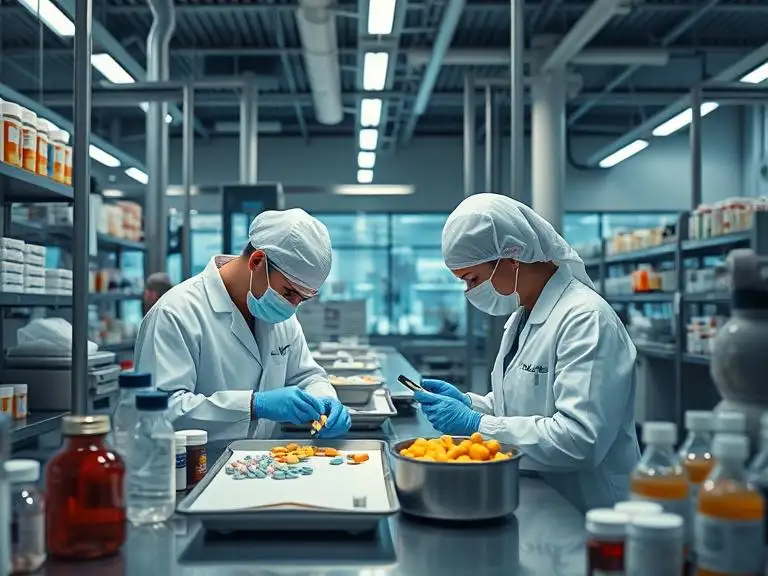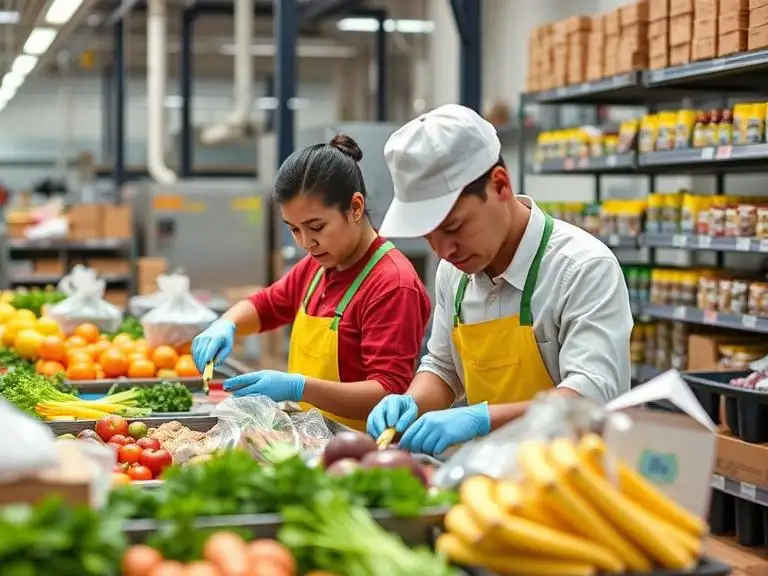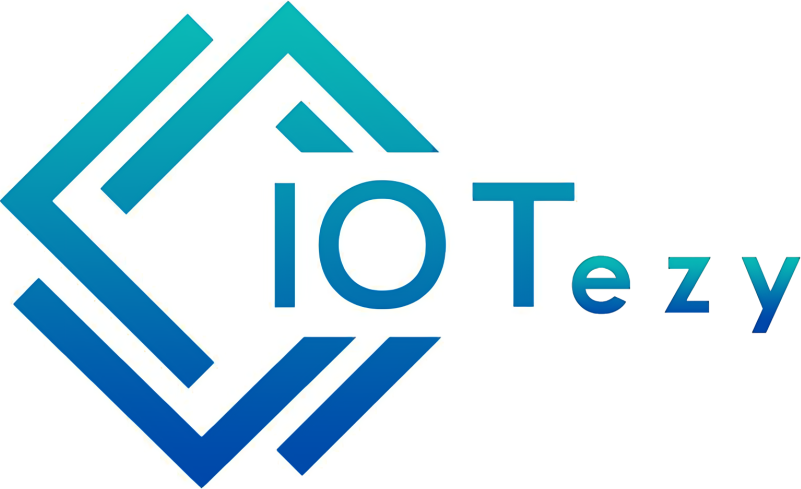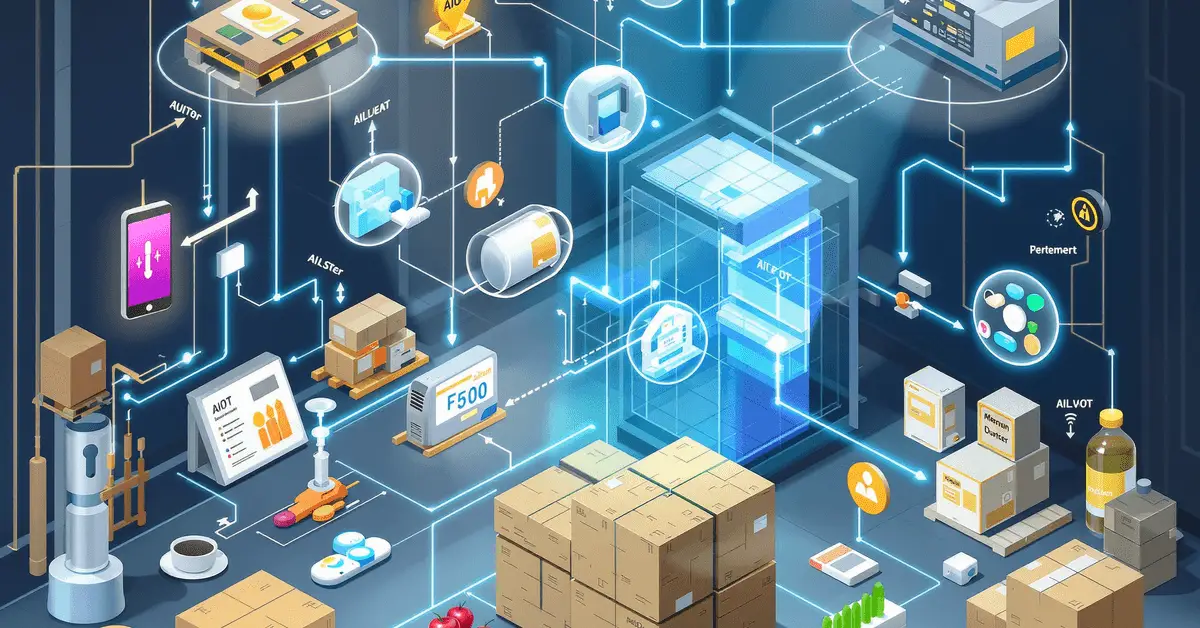Top 5 Cold Chain Industries utilizing AIOT
The combination of Artificial Intelligence (AI) and the Internet of Things (IoT), known as AIOT, has transformed cold chain management across various industries. This powerful duo allows for intelligent, automated decision-making through interconnected devices and sensors that ensure precise temperature controls throughout the entire supply chain.
Cold chain management is crucial for maintaining the quality and safety of products during storage, handling, and transportation. This is especially critical for:
- Temperature-sensitive pharmaceuticals
- Perishable food items
- Fragile biotechnology materials
- Hazardous chemicals
- Fresh agricultural products
AIOT brings significant improvements to traditional cold chain operations by:
- Monitoring in real-time: Keeping track of temperature, humidity, and other environmental factors as they happen
- Predicting maintenance needs: Using data analysis to anticipate when equipment or inventory will require attention
- Sending automated alerts: Instantly notifying relevant parties when there are deviations from set parameters
- Optimizing operations: Using insights gained from data analysis to make informed decisions about processes and resources
Five industries have taken the lead in using AIOT for superior cold chain management:
- Pharmaceutical Industry: Ensuring that medications remain effective and safe
- Food Manufacturing and Distribution: Minimizing waste and preserving freshness in food products
- Biotechnology: Safeguarding sensitive biological materials during transport and storage
- Chemical Industry: Handling hazardous materials in a secure manner
- Floral Supply Chain: Keeping flowers fresh and maintaining their quality throughout the supply chain
These industries showcase how AIOT solutions tackle specific challenges while also adhering to strict regulations and quality standards in temperature-controlled logistics.
1. Pharmaceutical Industry

The pharmaceutical industry is leading the way in using AIOT technology for cold chain management. This innovative approach is transforming the global handling, storage, and distribution of temperature-sensitive medications and vaccines.
Real-Time Tracking with IoT Sensors
Advanced IoT sensor networks create an unbreakable digital chain of custody throughout the pharmaceutical supply chain:
Temperature Monitoring Systems
- Continuous recording of temperature fluctuations
- Immediate alerts for deviations from acceptable ranges
- Historical data logging for compliance documentation
Location Tracking
- GPS-enabled containers provide real-time position updates
- Route optimization based on environmental conditions
- Automated geofencing for secure transport zones
The integration of AI with these sensor networks enables:
Predictive Analytics
- Early detection of potential temperature excursions
- Risk assessment based on historical patterns
- Automated corrective action recommendations
Predictive Maintenance for Equipment Reliability
Smart monitoring systems transform equipment maintenance strategies:
Equipment Performance Tracking
- Real-time monitoring of refrigeration units
- Vibration analysis of critical components
- Power consumption patterns assessment
AI-Driven Maintenance Scheduling
- Automated maintenance alerts based on usage patterns
- Optimization of service intervals
- Reduction in unexpected breakdowns
Case Study Results:
A leading pharmaceutical manufacturer reported 45% reduction in temperature excursions and 60% decrease in maintenance costs after implementing AIOT solutions.
The pharmaceutical cold chain benefits from AIOT through:
- Quality Assurance Automated compliance documentation
- Real-time product quality verification
- Enhanced batch tracking capabilities
- Cost Efficiency Reduced product waste
- Optimized energy consumption
- Streamlined inventory management
These technological advancements ensure pharmaceutical products maintain their efficacy from production to patient delivery, meeting strict regulatory requirements while improving operational efficiency.
Predictive Maintenance for Equipment Reliability
Predictive maintenance powered by AIOT is transforming pharmaceutical cold storage operations with its advanced analytics and machine learning capabilities. These systems analyze equipment performance patterns to identify potential failures before they happen.
Key Predictive Maintenance Features:
- Real-time equipment health monitoring
- Performance pattern analysis
- Early warning systems for potential failures
- Automated maintenance scheduling
- Historical data analysis for trend identification
A recent case study from a major pharmaceutical distributor showed that they were able to reduce maintenance costs by 45% after implementing AIOT-driven predictive maintenance. Their system was able to detect small changes in compressor performance, preventing three major breakdowns that could have resulted in $2 million worth of temperature-sensitive medications being compromised.
Impact on Cold Chain Operations:
- 30-40% decrease in unexpected equipment failures
- 25% reduction in maintenance costs
- 50% improvement in equipment lifespan
- 60% decrease in emergency repair situations
The integration of predictive maintenance algorithms with IoT sensors creates a comprehensive monitoring system that:
- Tracks equipment vibration patterns
- Monitors power consumption fluctuations
- Analyzes temperature consistency
- Evaluates system pressure levels
- Detects unusual operational sounds
These insights enable pharmaceutical facilities to optimize maintenance schedules, reduce operational costs, and maintain consistent temperature conditions critical for drug storage. The system’s ability to predict and prevent equipment failures ensures uninterrupted cold chain operations and maintains product integrity throughout the storage period.
2. Food Manufacturing and Distribution

The food industry faces unique challenges in maintaining product freshness, managing inventory, and reducing waste. AIOT solutions transform these challenges into opportunities for enhanced efficiency and improved food safety standards.
Demand Forecasting Using Market Trends Analysis
AI-powered algorithms analyze multiple data points to predict consumer demand patterns:
- Historical Sales Data: Machine learning models process past sales records to identify seasonal trends and buying patterns
- Weather Conditions: Smart systems correlate weather forecasts with purchasing behaviors
- Local Events: AI tracks community events, holidays, and regional activities that influence food demand
- Social Media Trends: Real-time analysis of consumer preferences and emerging food trends
These predictive capabilities enable food manufacturers to:
- Adjust production schedules based on anticipated demand
- Optimize raw material procurement
- Reduce excess inventory carrying costs
- Minimize food waste through precise ordering
Real-World Impact:
A major supermarket chain implemented AIOT-driven demand forecasting, resulting in a 30% reduction in food waste and a 25% improvement in inventory turnover.
Smart Inventory Management
AIOT systems revolutionize inventory control through:
- Dynamic Shelf-Life Monitoring
- Sensors track temperature fluctuations
- Real-time quality assessment
- Automated alerts for potential spoilage
- Automated Stock Rotation
- First-in-first-out (FIFO) compliance
- Smart shelving systems
- Digital tracking of expiration dates
- Supply Chain Visibility
- End-to-end tracking capabilities
- Temperature mapping during transit
- Blockchain integration for traceability
Key Benefits:
- 40-60% reduction in manual inventory checks
- Up to 25% decrease in product spoilage
- Enhanced compliance with food safety regulations
- Improved customer satisfaction through consistent product quality
AIOT solutions in food manufacturing create a data-driven ecosystem where every aspect of production and distribution is optimized for efficiency and quality control.
Smart Warehousing with Automated Inventory Processes
Smart warehousing is transforming the food manufacturing and distribution industry by using advanced automation systems. These intelligent storage facilities use IoT sensors, robotics, and AI-powered management systems to create a smooth and efficient inventory control environment.
Key features of smart warehousing systems include:
- Temperature-mapped storage zones with automated climate control adjustments
- RFID tracking for real-time product location and movement monitoring
- AI-driven picking systems that optimize product selection and reduce human error
- Automated sorting mechanisms that organize products based on expiration dates
The implementation of smart sensors throughout warehouse facilities enables:
- Real-time monitoring of storage conditions
- Immediate alerts for temperature fluctuations
- Automated inventory counts and stock level updates
- Precise tracking of product shelf life
Smart warehousing systems demonstrate significant improvements in operational metrics:
- 40% reduction in inventory management costs
- 65% decrease in product spoilage
- 85% improvement in picking accuracy
- 30% increase in storage space utilization
These automated systems create a data-rich environment where every aspect of inventory management is tracked and optimized. The integration of smart sensors with warehouse management systems enables precise control over storage conditions, ensuring product quality while maximizing operational efficiency.
The automated processes eliminate manual counting errors and provide instant visibility into stock levels, enabling proactive inventory management and reducing the risk of stockouts or overstock situations.
3. Biotechnology Cold Chain Logistics Solutions

Biotechnology products demand precision-controlled environments during transportation. These sensitive materials, including vaccines, cell cultures, and genetic materials, require specific temperature ranges maintained within ±0.5°C throughout their journey.
Critical Requirements for Biotech Transportation:
- Temperature stability between -80°C to +4°C
- Continuous humidity monitoring
- Vibration control during transit
- Real-time location tracking
- Contamination prevention measures
AIOT systems are transforming biotech cold chain logistics with integrated sensor networks and smart monitoring solutions. These systems create a digital ecosystem where every aspect of transportation is tracked, analyzed, and optimized in real-time.
Enhanced Security Measures with Data Protection Systems
The biotech industry faces unique security challenges in protecting both physical assets and sensitive data. AIOT-powered security systems implement multi-layered protection protocols:
Physical Security:
- Biometric access controls
- Smart locks with remote monitoring
- Temperature-tamper detection
- Real-time surveillance systems
- Automated alert mechanisms
Digital Security:
- End-to-end encryption
- Blockchain technology for data integrity
- AI-powered threat detection
- Secure cloud storage solutions
- Regular security audits
Recent security innovations have prevented significant breaches in biotech logistics. A prominent European biotech company implemented AIOT security measures that detected and prevented unauthorized access attempts to their cold storage facilities. The system’s AI algorithms identified suspicious patterns in access requests, triggering immediate security protocols.
Real-World Applications:
- A major vaccine manufacturer uses AIOT-enabled containers with built-in GPS tracking and temperature monitoring
- Research facilities employ smart access control systems that maintain detailed logs of sample handling
- Biotech startups utilize cloud-based platforms for real-time monitoring of sensitive materials during transit
The integration of AIOT in biotech cold chain logistics creates a seamless network of connected devices and sensors. These systems work together to maintain product integrity while providing comprehensive security coverage for both physical assets and digital data.
4. Chemical Industry Compliance and Safety Enhancements

The chemical industry has strict rules to follow when transporting dangerous materials that need to be kept at specific temperatures. AIOT solutions turn these challenges into opportunities for better safety and compliance.
Critical Regulatory Requirements:
- Temperature deviation monitoring within ±0.5°C
- Real-time hazardous material tracking
- Documentation of environmental conditions
- Emergency response protocols
- Chain of custody verification
AIOT systems use smart sensors and AI algorithms to create a comprehensive monitoring network. These systems track:
- Chemical stability parameters
- Container integrity
- Temperature fluctuations
- Humidity levels
- Exposure to light
- Shock and vibration data
Energy Management Solutions for Refrigeration Units
Smart refrigeration systems powered by AIOT deliver precise temperature control while optimizing energy consumption. The implementation of these systems has shown:
- 15-25% reduction in energy costs
- 30% decrease in temperature-related incidents
- 40% improvement in maintenance efficiency
Key Energy Optimization Strategies:
- Dynamic temperature adjustment based on:
- Ambient conditions
- Product requirements
- Peak/off-peak energy rates
- Loading patterns
- Predictive maintenance scheduling through:
- Equipment performance monitoring
- Early warning systems
- Automated maintenance alerts
- Component life-cycle tracking
AIOT-enabled cold chain monitoring systems create digital twins of refrigeration units, enabling:
- Real-time performance optimization
- Load balancing across multiple units
- Automated emergency responses
- Energy consumption forecasting
The integration of blockchain technology with AIOT systems ensures:
- Immutable record-keeping
- Transparent audit trails
- Automated compliance reporting
- Secure data sharing with regulatory bodies
These technological advancements result in significant cost savings through:
- Reduced energy waste
- Lower maintenance expenses
- Decreased compliance violations
- Minimized product loss
- Optimized resource allocation
5. Innovations in Floral Supply Chain Management

The floral industry faces unique challenges in maintaining product freshness and quality throughout the supply chain. Fresh flowers require precise temperature control, specific humidity levels, and careful handling to preserve their delicate nature.
Critical Requirements for Floral Transportation:
- Temperature range: 34-36°F (1-2°C)
- Humidity levels: 85-95%
- Ethylene gas monitoring
- Gentle handling protocols
- Quick delivery timelines
AIOT systems transform traditional floral supply chains through intelligent monitoring and automated decision-making processes. Smart sensors track environmental conditions in real-time, triggering immediate adjustments to maintain optimal preservation conditions.
Advanced Monitoring Systems
Temperature-controlled vehicles equipped with AIOT devices provide:
- Real-time temperature mapping
- Automated climate control adjustments
- Location tracking with ETA updates
- Remote monitoring capabilities
- Instant alerts for condition deviations
Operational Efficiency Improvements Through Automation
The integration of AIOT streamlines multiple aspects of floral logistics:
Warehouse Management:
- Automated sorting systems
- Smart inventory tracking
- Predictive shelf-life calculations
- Dynamic storage optimization
- Automated packaging solutions
Labor Optimization:
- 40% reduction in manual handling
- Decreased product damage rates
- Enhanced worker productivity
- Streamlined picking processes
- Reduced training requirements
AIOT-powered systems enable precise tracking of each flower batch from harvest to retail delivery. Smart algorithms analyze historical data to optimize routing and delivery schedules, reducing transit times by up to 30%.
Productivity Enhancements:
- Automated quality inspection systems
- Real-time inventory visibility
- Predictive maintenance schedules
- Smart resource allocation
- Integrated supply chain communications
The implementation of AIOT solutions in floral supply chains has demonstrated significant ROI:
- 25% reduction in waste
- 35% improvement in delivery accuracy
- 20% decrease in operational costs
- 45% increase in product shelf life
- 15% boost in customer satisfaction
These technological advancements create a more resilient and efficient floral supply chain, ensuring fresh, high-quality products reach consumers while maximizing profitability for industry stakeholders.
Conclusion
AIOT technologies continue to reshape cold chain industries with groundbreaking innovations. The integration of smart sensors, predictive analytics, and automated systems has created a new standard for temperature-controlled logistics across diverse sectors.
The pharmaceutical industry benefits from enhanced product safety through real-time monitoring, while food manufacturers leverage AI-driven demand forecasting to minimize waste. Biotechnology companies maintain product integrity with advanced security protocols, and chemical industries achieve regulatory compliance through automated tracking systems.
These technological advancements deliver:
- Improved operational efficiency through automated processes
- Enhanced product quality with precise temperature control
- Reduced costs via predictive maintenance
- Better compliance with regulatory requirements
- Minimized waste through smart inventory management
The cold chain landscape evolves rapidly as AIOT capabilities expand. New developments in sensor technology, machine learning algorithms, and automation systems promise even greater precision in temperature-controlled logistics. These innovations drive the transformation of cold chain operations, setting higher standards for product safety, efficiency, and reliability across industries.

